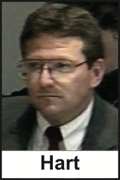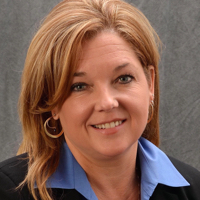Rascals case in brief
In the beginning, in 1989, more than 90 children at the Little Rascals Day Care Center in Edenton, North Carolina, accused a total of 20 adults with 429 instances of sexual abuse over a three-year period. It may have all begun with one parent’s complaint about punishment given her child.
Among the alleged perpetrators: the sheriff and mayor. But prosecutors would charge only Robin Byrum, Darlene Harris, Elizabeth “Betsy” Kelly, Robert “Bob” Kelly, Willard Scott Privott, Shelley Stone and Dawn Wilson – the Edenton 7.
Along with sodomy and beatings, allegations included a baby killed with a handgun, a child being hung upside down from a tree and being set on fire and countless other fantastic incidents involving spaceships, hot air balloons, pirate ships and trained sharks.
By the time prosecutors dropped the last charges in 1997, Little Rascals had become North Carolina’s longest and most costly criminal trial. Prosecutors kept defendants jailed in hopes at least one would turn against their supposed co-conspirators. Remarkably, none did. Another shameful record: Five defendants had to wait longer to face their accusers in court than anyone else in North Carolina history.
Between 1991 and 1997, Ofra Bikel produced three extraordinary episodes on the Little Rascals case for the PBS series “Frontline.” Although “Innocence Lost” did not deter prosecutors, it exposed their tactics and fostered nationwide skepticism and dismay.
With each passing year, the absurdity of the Little Rascals charges has become more obvious. But no admission of error has ever come from prosecutors, police, interviewers or parents. This site is devoted to the issues raised by this case.
On Facebook
Click for earlier Facebook posts archived on this site
Click to go to
Today’s random selection from the Little Rascals Day Care archives….
Click for earlier Facebook posts archived on this site
Click to go to
Today’s random selection from the Little Rascals Day Care archives….
How Bill Hart got better at playing dirty
Dec. 2, 2011
 “Videotaped interviews made during the early cases (alleging day care ritual sex abuse) show that when children were allowed to speak freely, either they had nothing to say about abuse or they denied it ever happened to them.
“Videotaped interviews made during the early cases (alleging day care ritual sex abuse) show that when children were allowed to speak freely, either they had nothing to say about abuse or they denied it ever happened to them.
“Once it became obvious that these records would prevent guilty verdicts, prosecutors began advising investigators not to keep tapes or detailed notes of their work.”
– From “Satan’s Silence: Ritual Abuse and the Making of a Modern American Witch Hunt” by Debbie Nathan and Michael Snedeker (1995)
Perhaps the most significant difference in the two largest abuse trials was that McMartin defense attorneys were able to expose to jurors the prosecution therapists’ manipulative interview techniques, while Little Rascals attorneys were stymied by the premeditated unavailability of original documentation.
“After Bob Kelly’s indictment,” according to an article in the ABA Journal, “Bill Hart, a North Carolina deputy attorney general assigned to the case, traveled to Los Angeles to consult with McMartin prosecutors.
“He learned that McMartin jurors had criticized videotapes of therapist Kee McFarlane’s interviews with the children. She asked leading questions and rebuked children who did not tell of abuse….”
Hart could have brought back to North Carolina the lesson that interviewers shouldn’t “(ask) leading questions and (rebuke) children who did not tell of abuse.” Instead, he brought back the lesson that interviewers should leave no evidence of having used exactly those fraudulent techniques.
When adversarial system doesn’t lead to justice

ncaj.com
Christine Mumma
May 26, 2016
“I would like to see more cooperation between prosecutors and defense attorneys in their efforts to achieve justice, particularly when there is a credible post-conviction claim of innocence. The overloaded, underfunded, and often inefficient adversarial system doesn’t have to be the approach when common sense and a shared interest in justice can more quickly address injustices for the convicted and victims of crime.
“Prosecutorial conviction integrity units around the country have made that clear, but the North Carolina Conference of District Attorneys seems to be encouraging less cooperation, not more.”
– Christine Mumma, quoted by the North Carolina Advocates for Justice
Mumma, of course, has famously endured the wrath of prosecutors whose autocracy she challenged.
You can like the North Carolina Conference of District Attorneys on Facebook.
Or not.
![]()
DA Williams to jury: Don’t consider the source
 Feb. 20, 2013
Feb. 20, 2013
“Don’t focus on the question, focus on the answer.”
– District Attorney H. P. Williams, urging jurors to ignore the leading questions that therapists asked child-witnesses to elicit accusations against Bob Kelly
“Pay no attention to that man behind the curtain.”
– The Wizard of Oz
When will wheels of justice turn for Junior?
Sept. 23, 2013
There’s a bit of an update out of Raleigh on Junior Chandler’s prospects for clemency.
Billy Chandler, Junior’s brother, received this email last week from Pat Hansen in the Governor’s Clemency Office:
“Attorney Mark Montgomery filed a commutation request with this office at the end of Governor Perdue’s term in office. However, due to the volume of requests received, the request was not ‘officially reopened.’ Currently, we are working on all of the cases held over from the Perdue Administration. Unfortunately, I cannot tell you when your brother’s case will be reviewed.”
In North Carolina the governor’s clemency power covers both pardons and commutations. Here’s the stated distinction:
“Commutation – whereby an individual presently incarcerated and serving an active sentence has their sentence commuted or reduced by any number of years, months, or days, or to make parole eligible, or to time served which would release the individual immediately.
“Pardon – may be granted to those individuals who have maintained a good reputation in their community, following the completion of their sentence for a criminal offense. Ordinarily, an applicant must wait to apply until at least five years have elapsed since the applicant was released from State supervision (including probation or parole). A Pardon is merely an official statement attached to the criminal record that states that the State of North Carolina has pardoned the crime. A Pardon does not expunge or erase a criminal record….”
As much as the facts of Junior’s case call for a pardon, a commutation seems not quite as steep a challenge. However great “the volume of requests received,” Junior Chandler’s surely deserves to be at the top of the stack.











0 CommentsComment on Facebook